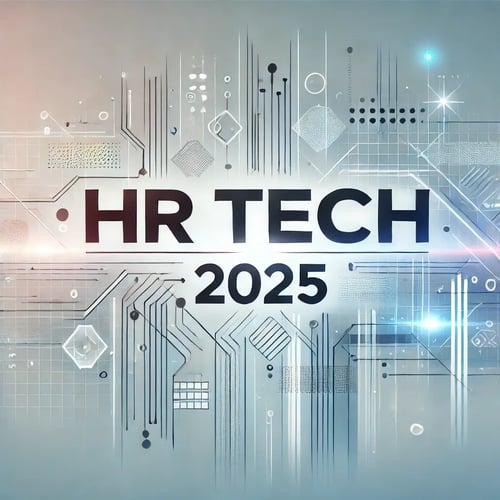
As we step into 2025, the Human Resources (HR) technology landscape is poised for transformative changes. These advancements are set to redefine how organizations manage talent, enhance employee experiences, and drive operational efficiency. Here are the top HR tech trends to watch in 2025:
1. Artificial Intelligence (AI) and Machine Learning Integration
AI and machine learning are revolutionizing HR by automating routine tasks and providing data-driven insights. AI-powered Human Resource Information Systems (HRIS) can analyze employee data to predict turnover, identify skill gaps, and personalize training programs. This enables HR professionals to make informed decisions and focus on strategic initiatives that drive organizational growth.
2. Emphasis on Employee Experience (EX)
A holistic approach to the employee experience is paramount. HR technologies are being leveraged to enhance every touchpoint in the employee lifecycle, from recruitment to offboarding. Implementing AI-driven recruitment tools can streamline hiring, while personalized learning platforms support continuous development. Additionally, digital platforms that facilitate seamless communication and feedback contribute to a more engaged and satisfied workforce.
3. Adoption of Virtual and Augmented Reality (VR/AR) for Training
VR and AR technologies are transforming employee training by providing immersive learning experiences. These technologies allow employees to engage in realistic simulations, enhancing skill acquisition and retention. For instance, complex tasks can be practiced in a virtual environment, reducing the risk of errors in real-world applications.
4. Support for Hybrid and Remote Work Models
The shift towards hybrid and remote work models continues to influence HR strategies. Technological solutions that facilitate seamless collaboration, performance monitoring, and employee engagement are essential. This includes tools that automate checks of employee credentials, handle contracts, and ensure payroll authenticity.
5. Enhanced Employee Monitoring and Well-being
Employee well-being is at the forefront of HR concerns. Technological solutions that monitor employee engagement, provide mental health resources, and promote work-life balance are becoming integral. These tools help in identifying burnout risks and ensuring a supportive work environment.
6. Data-Driven Decision Making
HR departments are increasingly relying on data analytics to inform decisions. By analyzing metrics related to employee performance, engagement, and turnover, organizations can develop strategies that enhance productivity and retention. Data-driven insights enable HR to proactively address issues and optimize workforce management.
7. Cybersecurity and Data Privacy
With the increasing reliance on digital HR solutions, ensuring the security and privacy of employee data is critical. Organizations are investing in robust cybersecurity measures and compliance with data protection regulations to maintain trust and protect sensitive information.
8. Implementation of Blockchain Technology
Blockchain technology is being explored for its potential to enhance transparency and security in HR processes. It can be used for verifying credentials, managing contracts, and ensuring the authenticity of payroll transactions, thereby reducing administrative burdens and the risk of fraud.
9. Personalized Employee Development Plans
Development programs that facilitate individual growth are becoming the norm. HR technologies are enabling the creation of personalized development plans that align with employees’ career aspirations and organizational goals, fostering engagement and retention.
In conclusion, the HR technology trends of 2025 are centered around enhancing efficiency, improving employee experiences, and leveraging data for strategic decision-making. By embracing these trends, organizations can build a flexible and adaptable workforce capable of thriving in the modern workplace.